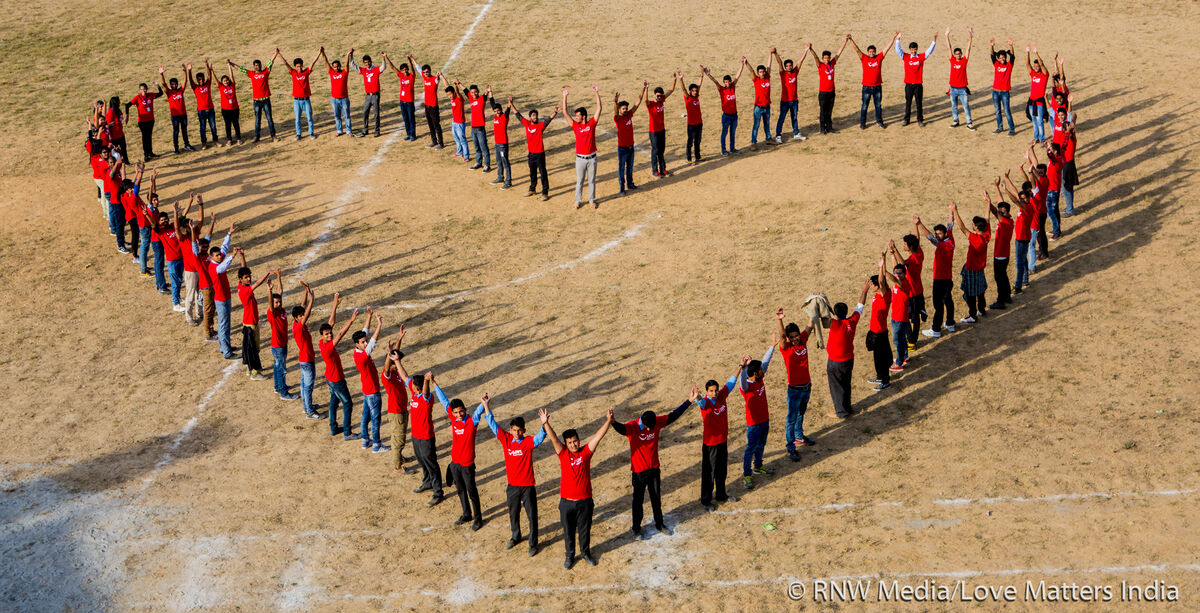- Austausch & Vernetzung
- Wissen & Lernen
- Advocacy
- Unsere Themen
Von Vithika Yadav
Do you ever wonder why talking about sex, sexuality, sexual desire and pleasure brings in such feeling of shame and embarrassment? After all there is nothing unnatural about it nor are we born with this shame. But we grow up hearing, knowing and feeling that sex is something shameful. Sex and sexuality is often thrown at us as topics not be discussed, as topics that are meant only for adults, from which adolescents and young people need to be protected. Social and cultural taboos make it even more difficult for adolescents, young people and even adults to have meaningful conversations about sex, desire and need for information and rights based services.

Many of us may have encountered this shame around sex for the first time as children. Intentionally or unintentionally, we are taught from a very early age to use some silly names to refer to our genitals. The correct terminology is somehow offensive. So much so that many children don’t even feel informed and empowered to talk about sexual abuse because as a society we have struggled to understand why talking about sex or anything related to sex is so shameful. I wouldn’t deny that we have made some progress in the recent years. A lot is being talked about but a lot of information and conversations are still missing in many parts of the world. We are still struggling to acknowledge that young people are autonomous beings and are sexual beings. They have questions not only about the body, about good touch and bad touch but much more. This ‘more’ also includes what feels good about sex and what can help them have a good, healthy and satisfying relationship.
There is emerging evidence that indicates that the systems that create positive and negative attitudes (and outcomes) around sex, sexuality and desire exist at the intersection between the individual and issues that shape our social contexts. Unfortunately, most work on family planning in India and in many countries around the world has not really focused on young people (especially unmarried) and their Sexual and Reproductive Health and Rights (SRHR) needs with a comprehensive and pleasure based approach. In communities, both offline and online, open, honest and non-judgmental discussions about sex are silenced. There is a climate of sex-based shame. For Governments, Donors, organizations, activists and programs working and investing on family planning, we need to be able to ask ourselves – are we really understanding the needs of young people and adolescents well? Are we looking into their social structures and contexts? Are we looking at our own bias and assumption in the work we do? Do we need to may be rethink, restrategize and redesign our programs?

If our goal is to have people access SRHR information and services that are comprehensive, non -judgmental and friendly, we need to start early. If we want people to make informed decisions about their sexual and reproductive health, we need to start with adolescents. We need to acknowledge that they need information, we need to be able to guide them to right spaces, both online and offline for right information, we must be able to create information in language, tone and style that works for them.
We need to teach adolescents and young people that seeking SRHR information and services is not shameful and they must exercise their right to do so. We need to be able to help them navigate the world of internet and inform them why pornography which is so easily accessible and popular is harmful and what are the alternative sources of information on digital platforms where they can seek good and fact based information.
Both socio-cultural and structural barriers stand in their way, and as a result, young people often face unintended and unhealthy health outcomes. In order to help adolescents and young people with access to information and services that they need, we must understand and address the barriers they face in accessing these and we must understand what works in empowering them to overcome these barriers. It is our responsibility – as individuals, parents, community, organizations, donors and governments to be able to provide a conducive environment where adolescents / young people are not ashamed of asking for information and services and we are able to guide them. This requires a systematic change and it requires diverse stakeholders to come together and work towards it.

Love Matters began its journey by trying to understand and collect information on young people’s needs, youth's perceptions about the socio-cultural and other structural aspects of their contexts. We asked young people about what information about sex were they consuming, what were their sources of information and we tried to understand what might be influencing and shaping their sexual behaviour patterns, and ultimately their health outcomes. Every day at Love Matters, we try to understand and investigate struggles that young people face within their communities, family, peer, and broader social contexts in context of their sexual and reproductive health and rights, so that we are able to create content and design programs that speaks to them about issues that matter to them.
We need to hear from adolescents and young people about their sexual and reproductive health needs, about their challenges and about their aspirations. We need to learn from them and we need to invest in them. Investing in their SRHR needs has the potential to transform societies. If adolescents / young people grow up healthy, educated, informed, empowered and not discriminated on the basis on their gender, class, caste, ethnicity, sexual orientation, socio-economic status and having access to quality services without any judgment, they are potentially going to contribute to creating healthier communities, societies and nations.